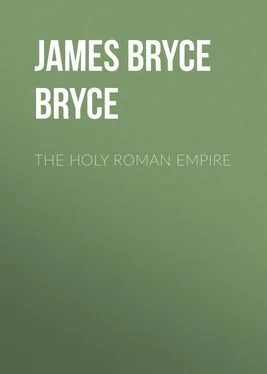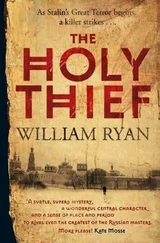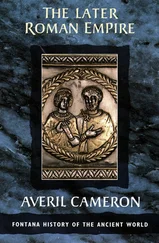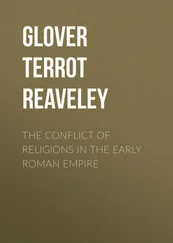James Bryce - The Holy Roman Empire
Здесь есть возможность читать онлайн «James Bryce - The Holy Roman Empire» — ознакомительный отрывок электронной книги совершенно бесплатно, а после прочтения отрывка купить полную версию. В некоторых случаях можно слушать аудио, скачать через торрент в формате fb2 и присутствует краткое содержание. Жанр: foreign_antique, foreign_prose, Историческая проза, на английском языке. Описание произведения, (предисловие) а так же отзывы посетителей доступны на портале библиотеки ЛибКат.
- Название:The Holy Roman Empire
- Автор:
- Жанр:
- Год:неизвестен
- ISBN:нет данных
- Рейтинг книги:4 / 5. Голосов: 1
-
Избранное:Добавить в избранное
- Отзывы:
-
Ваша оценка:
- 80
- 1
- 2
- 3
- 4
- 5
The Holy Roman Empire: краткое содержание, описание и аннотация
Предлагаем к чтению аннотацию, описание, краткое содержание или предисловие (зависит от того, что написал сам автор книги «The Holy Roman Empire»). Если вы не нашли необходимую информацию о книге — напишите в комментариях, мы постараемся отыскать её.
The Holy Roman Empire — читать онлайн ознакомительный отрывок
Ниже представлен текст книги, разбитый по страницам. Система сохранения места последней прочитанной страницы, позволяет с удобством читать онлайн бесплатно книгу «The Holy Roman Empire», без необходимости каждый раз заново искать на чём Вы остановились. Поставьте закладку, и сможете в любой момент перейти на страницу, на которой закончили чтение.
Интервал:
Закладка:
Italy reconquered, by Justinian.
Thus again reunited in fact, as it had been all the while united in name, to the Roman Empire, the peninsula was divided into counties and dukedoms, and obeyed the exarch of Ravenna, viceroy of the Byzantine court, till the arrival of the Lombards in A.D. 568 drove him from some districts, and left him only a feeble authority in the rest.
The Transalpine provinces.
Beyond the Alps, though the Roman population had now ceased to seek help from the Eastern court, the Empire's rights still subsisted in theory, and were never legally extinguished. As has been said, they were admitted by the conquerors themselves: by Athaulf, when he reigned in Aquitaine as the vicar of Honorius, and recovered Spain from the Suevi to restore it to its ancient masters; by the Visigothic kings of Spain, when they permitted the Mediterranean cities to send tribute to Byzantium; by Clovis, when, after the representatives of the old government, Syagrius and the Armorican cities, had been overpowered or absorbed, he received with delight from the Eastern emperor Anastasius the grant of a Roman dignity to confirm his possession. Arrayed like a Fabius or Valerius in the consul's embroidered robe, the Sicambrian chieftain rode through the streets of Tours, while the shout of the provincials hailed him Augustus 33 33 'Igitur Chlodovechus ab imperatore Anastasio codicillos de consulatu accepit, et in basilica beati Martini tunica blatea indutus est et chlamyde, imponens vertici diadema … et ab ea die tanquam consul aut (=et) Augustus est vocitatus.' – Gregory of Tours, ii. 58.
. They already obeyed him, but his power was now legalised in their eyes, and it was not without a melancholy pride that they saw the terrible conqueror himself yield to the spell of the Roman name, and do homage to the enduring majesty of their legitimate sovereign 34 34 Sir F. Palgrave ( English Commonwealth ) considers this grant as equivalent to a formal ratification of Clovis' rule in Gaul. Hallam rates its importance lower ( Middle Ages , note iii. to chap. i.). Taken in connection with the grant of south-eastern Gaul to Theodebert by Justinian, it may fairly be held to shew that the influence of the Empire was still felt in these distant provinces.
.
Lingering influences of Rome.
Yet the severed limbs of the Empire forgot by degrees their original unity. As in the breaking up of the old society, which we trace from the sixth to the eighth century, rudeness and ignorance grew apace, as language and manners were changed by the infiltration of Teutonic settlers, as men's thoughts and hopes and interests were narrowed by isolation from their fellows, as the organization of the Roman province and the Germanic tribe alike dissolved into a chaos whence the new order began to shape itself, dimly and doubtfully as yet, the memory of the old Empire, its symmetry, its sway, its civilization, must needs wane and fade. It might have perished altogether but for the two enduring witnesses Rome had left – her Church and her Law. The barbarians had at first associated Christianity with the Romans from whom they learned it: the Romans had used it as their only bulwark against oppression.
Religion.
The hierarchy were the natural leaders of the people, and the necessary councillors of the king. Their power grew with the extinction of civil government and the spread of superstition; and when the Frank found it too valuable to be abandoned to the vanquished people, he insensibly acquired the feelings and policy of the order he entered.
As the Empire fell to pieces, and the new kingdoms which the conquerors had founded themselves began to dissolve, the Church clung more closely to her unity of faith and discipline, the common bond of all Christian men. That unity must have a centre, that centre was Rome. A succession of able and zealous pontiffs extended her influence (the sanctity and the writings of Gregory the Great were famous through all the West): never occupied by barbarians, she retained her peculiar character and customs, and laid the foundations of a power over men's souls more durable than that which she had lost over their bodies 35 35 Even so early as the middle of the fifth century, S. Leo the Great could say to the Roman people, 'Isti (sc. Petrus et Paulus) sunt qui te ad hanc gloriam provexerunt ut gens sancta, populus electus, civitas sacerdotalis et regia, per sacram B. Petri sedem caput orbis effecta latius præsideres religione divina quam dominatione terrena.' — Sermon on the feast of SS. Peter and Paul. (Opp. ap. Migne tom. i. p. 336.)
.
Jurisprudence.
Only second in importance to this influence was that which was exercised by the permanence of the old law, and of its creature the municipality. The barbarian invaders retained the customs of their ancestors, characteristic memorials of a rude people, as we see them in the Salic law or in the ordinances of Ina and Alfred. But the subject population and the clergy continued to be governed by that elaborate system which the genius and labour of many generations had raised to be the most lasting monument of Roman greatness.
The civil law had maintained itself in Spain and Southern Gaul, nor was it utterly forgotten even in the North, in Britain, on the borders of Germany. Revised editions of the Theodosian code were issued by the Visigothic and Burgundian princes. For some centuries it was the patrimony of the subject population everywhere, and in Aquitaine and Italy has outlived feudalism. The presumption in later times was that all men were to be judged by it who could not be proved to be subject to some other 36 36 'Ius Romanum est adhuc in viridi observantia et eo iure præsumitur quilibet vivere nisi adversum probetur.' – Maranta, quoted by Marquard Freher.
. Its phrases, its forms, its courts, its subtlety and precision, all recalled the strong and refined society which had produced it. Other motives, as well as those of kindness to their subjects, made the new kings favour it; for it exalted their prerogative, and the submission enjoined by it on one class of their subjects soon came to be demanded from the other, by their own laws the equals of the prince. Considering attentively how many of the old institutions continued to subsist, and studying the feelings of that time, as they are faintly preserved in its scanty records, it seems hardly too much to say that in the eighth century the Roman Empire still existed in the West: existed in men's minds as a power weakened, delegated, suspended, but not destroyed.
It is easy for those who read the history of an age in the light of those that followed it, to perceive that in this men erred; that the tendency of events was wholly different; that society had entered on a new phase, wherein every change did more to localize authority and strengthen the aristocratic principle at the expense of the despotic. We can see that other forms of life, more full of promise for the distant future, had already begun to shew themselves: they – with no type of power or beauty, but that which had filled the imagination of their forefathers, and now loomed on them grander than ever through the mist of centuries – mistook, as it has been said of Rienzi in later days, memories for hopes, and sighed only for the renewal of its strength. Events were at hand by which these hopes seemed destined to be gratified.
CHAPTER IV.
RESTORATION OF THE WESTERN EMPIRE
It was towards Rome as their ecclesiastical capital that the thoughts and hopes of the men of the sixth and seventh centuries were constantly directed. Yet not from Rome, feeble and corrupt, nor on the exhausted soil of Italy, was the deliverer to arise. Just when, as we may suppose, the vision of a renewal of imperial authority in the Western provinces was beginning to vanish away, there appeared in the furthest corner of Europe, sprung of a race but lately brought within the pale of civilization, a line of chieftains devoted to the service of the Holy See, and among them one whose power, good fortune, and heroic character pointed him out as worthy of a dignity to which doctrine and tradition had attached a sanctity almost divine.
Читать дальшеИнтервал:
Закладка:
Похожие книги на «The Holy Roman Empire»
Представляем Вашему вниманию похожие книги на «The Holy Roman Empire» списком для выбора. Мы отобрали схожую по названию и смыслу литературу в надежде предоставить читателям больше вариантов отыскать новые, интересные, ещё непрочитанные произведения.
Обсуждение, отзывы о книге «The Holy Roman Empire» и просто собственные мнения читателей. Оставьте ваши комментарии, напишите, что Вы думаете о произведении, его смысле или главных героях. Укажите что конкретно понравилось, а что нет, и почему Вы так считаете.












